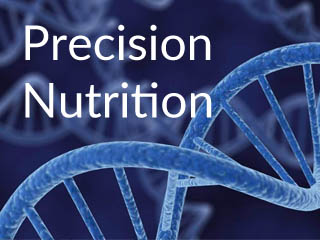There is now compounding evidence suggesting that Cancer is nothing other than a mutated cellular response to acidic bodies and anaerobic cellular metabolism (lack of oxygen). To put it plainly, the body relies on oxygen for metabolism and energy production. It is one of the most essential elements for life. We get it from our food, air and water. One of the common denominators found in cancer patients is an acidic ph of the body and low oxygenated blood. There is also a high correlation of an acid producing fugus called Candida among cancer patients. Bacteria, fungus and parasites thrive in anaerobic environments and also give off acidic byproducts.
What causes acidic bodies and poor oxygen metabolism?
There are many factors. The most influential are diet exercise, toxins and stress.
A diet high in processed sugars and fermented foods are highly acidic to the body. The typical Western diet tends to be high in refined sugar and sodium as well as low in potassium and antioxidants. Interestingly, fungus and bacteria thrive on sugary poorly digested foods.
The cell functions within a delicate balance of magnesium, potassium and sodium. If one of these is out of balance, it can cause the cell to work improperly and produce acidic byproducts in excess. The acidic cell no longer utilizes oxygen efficiently resulting in low blood oxygen. The body becomes more anaerobic in nature. The cells dysfunction leads to poor DNA signaling. The result can lead to chronic fatigue, high blood pressure, heart disease, diabetes, cancer, depression and many more if not the majority diseases. (some diseases are connected to high blood alkalinity).
Lack of exercise contributes to low blood oxygen. Regular exercise is very beneficial but over training can actually have a negative effect causing you to go beyond your maximum oxygen capacity. This results in excessive lactic acid production. The best way to exercise is to slowly train where you never go beyond 80% of your maximum heart rate. Labored breathing, feeling light headed and unable to speak is an indicator that you are beyond your ability to utilize oxygen efficiently creating an acidic byproduct. Deep belly breathing is also important. It allows oxygen to enter deep within the lung tissue and fill your body without the threat of overdoing it. Many people are going through life on CO2 overload and never truly breathing! Just think about how your chest feels when you are stressed or sad? It’s tight!! Deep belly breathing allows you to open up your lungs, relax and fully oxygenate your body while releasing CO2. The release of CO2 is part of the detoxification process.
We are inundated with massive amount of toxins on a daily basis from pollution, pesticides, cosmetics, and plastics. Many of these mimic estrogen in the body. These estrogen’s latch onto the natural estrogen receptor sites and cause an imbalance in natural hormones, causing a “back up”. Estrogen effects potassium levels at the cellular level which leads to an imbalance in cellular activity resulting in more acidity. This may increase the hormone related cancers such as breast, ovarian, and prostate.
Lack of sleep effects hormone levels in the body. Sleep is where your body does most of it’s healing and repairing. Inefficient sleep or erratic sleep patterns cause you to secrete more insulin and the release of cortisol. The release of cortisol sends signals to release high energy fatty acids into the blood stream for utilization (most people aren’t about to fight a tiger in their beds at night.) This also depletes the adrenals further disrupting hormone balance, especially estrogen balance, which brings you back to potassium and sodium imbalances at the cellular level.
Poor gut health can create an acidic environment. The gut contains thousands of strains of bacteria. There are the “good” and the “bad”. We now know that our good gut bacteria is partly responsible for digestion and release of nutrients, and detoxification of harmful bacteria, viruses, metals, and harmful chemicals. Unfortunately, we don’t help our “good” bacteria with some of our lifestyle habits. Alcohol, caffeine, toxins and medications damage and kill off these wonderful bacteria. Low “good” bacteria can result in poor digestion of vital nutrients, inflammation of the intestinal lining, over growth of “bad” bacteria, viruses and parasites, as well as a leaky gut. All of this can create an environment for acidic byproduct and poor oxygenated blood. Your GUT is extremely important for the detoxification process, immunity, brain health, absorption of nutrients, and cellular balance.
An acidic environment is related to an anaerobic metabolic state. Invaders such as bacteria, fungus and parasites all flourish in this environment. We have thousands of these buggers living in and on us throughout our lives. They also produce acidic byproducts. Some scientists think cancer is due to fungus as opposed to simple DNA disruption. My theory is that they are both related. This may be why so many cancer patients also have candida infection. Perhaps it is the acidic environment that causes low immunity and an anaerobic breeding ground for fungus to flourish. This may be creating the viscous cycle where fungus colonize, and continue to produce acidic byproducts. Some may wonder why this fungus or acidic environment tends to colonize in different areas. It may have to do with the ability to detox the body as well as hormone influences (also exacerbated by toxins) due to stress. Take an acidic body along with hormonal imbalance, you may find more cancer in areas of the sex organs. Take an acidic body along with toxins you might find it as lung cancer with smokers or people exposed to toxic inhalants (cigarettes are full of fungus). Take an acidic body along with toxic metal or chemical buildup, you may find more cancer in soft tissue such as bone, organs, and vessels.
What can you do to boost your ph and become less acidic?
Reduce or eliminate acidic producing foods such as processed and refined grains, processed meats, junk foods like sugary juice drinks, soda, candy, cakes, pies, etc.
Find out what your metabolic state is and eat according to your specific needs. Some may need to reduce meats and proteins and certain fats, while increaseing other types of amino acids and fats.
Eliminate yeast containing products such as yogurts, cheeses, alcohol, wheat, breads, over ripe fruits. (list of yeast foods)
Eat foods low in glycemic index. This will help your body keep insulin and hormonal levels more constant as well as aid in digestion. The lowest glycemic foods are found in most vegetables, and protein containing foods. (see list of low glycemic foods)
Support healthy GUT bacteria. Find out if you have a food intolerance. Any intolerance can cause intestinal inflammation. Take probiotics on an empty stomach to help replenish healthy bacteria since they are destroyed by daily stress and toxins. Greatly reduce or eliminate caffeine, alcohol and medications.
Eat foods that aid in detoxification. Wholesome raw foods are your best choice. Choose organic or low toxin foods. Animal products should be from grass fed, free range animals.
Sulfur and glutathione rich foods are known to aid in the detoxification process. Remember, if your GUT is compromised, much of these nutrients may not be absorbed along with other important enzymes (B-vitamins and amino acids).
Drink plenty of toxin free water. Water is a great source of oxygen.
Reduce stress. Stress management may require you to incorporate deep belly breathing, meditation/prayer, and getting organized. It also includes moderate-high intensity exercise and regular sleep. Psychological stress can actually cause spasms in the intestinal tract which stops or interrupts normal digestion of food. Undigested food feeds bad bacteria and yeast (fungus).
Take supportive supplements. Oregano oil has been known to reduce the “bad” bacteria. Omega 3’s have been helpful in cell membrane permeability. Drinking a cocktail of sodium bicarbonate has been helpful in some individuals for reducing acidity of the blood. Antioxidants are helpful in reducing oxidative stress to cells and promoting cellular healing. Increasing deficient vitamins and minerals may also help in correcting cellular disruption and imbalance. Some may benefit from methylated B -vitamins if they are genetically poor methylators. This is important for detoxification.




 Providing nutritional therapy and lifestyle education for disease prevention and weight management....
Providing nutritional therapy and lifestyle education for disease prevention and weight management....